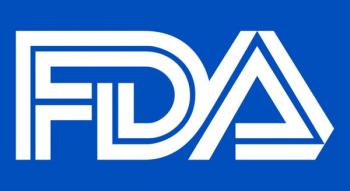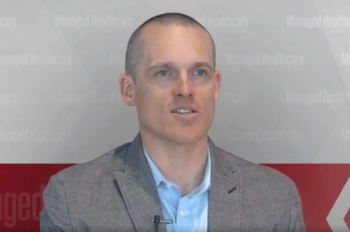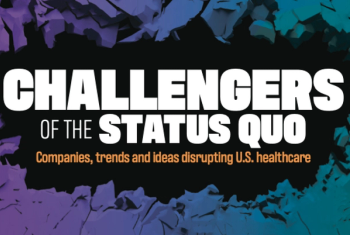
The ruling states insurers and employers who run plans for employees will have a choice over whether and how to cover certain routine screenings, exams and tests.

The ruling states insurers and employers who run plans for employees will have a choice over whether and how to cover certain routine screenings, exams and tests.

Expenditures break down from managed care, out of pocket, investments and others. In 2022, the dominant share was held by managed care segment.

The new feature automatically applies manufacturer-sponsored coupons directly to an eligible patient’s order. So far, just a few pharma companies have made their coupons available through Amazon.

A bipartisan Senate bill, Affordable Insulin Now Act of 2023, would require plans to cover insulin for no more than $35 per month.

Health spending and medical care prices typically outpace growth over the overall economy, but as of mid-2022, inflation rates of the economy have reached a four-decade high.

Members of the Senate Finance Committee want to modernize the rules around PBM business practices to lower out-of-pocket costs and increase competition.

Amongst a few recommendations, Commonweath is encouraging how and how much we as payers, providers and consumers pay for primary care.

Managing Directors of L.E.K. Consulting, Joe Johnson, Todd Clark and Brendan Mitchell introduce the innovations happening in pharmacy, more specifically disruptive innovations, and how they affect managed care. The team explained some of the innovations to be on the lookout for in the future, also.

Yoona Kim, PharmD, PhD, co-founder, CEO of Arine Inc., talked about the relationship between racial health disparities and medication non-adherence, and how artificial intelligence can help improve adherence between groups most affected such as Black, Latino and Asian populations.

Below highlights ways to recognize outstanding mental healthcare providers and the benefits that come from these efforts.

FDA approvals this week include: novel treatment for invasive candidiasis, an accelerated approval to Zynyz for Merkel cell carcinoma, the high-concentration Humira biosimilar Hyrimoz, and extension of Evkeeza’s indication to include young children. The agency also issued two complete responses this week: for Incyte’s extended-release Jakafi and for AbbVie’s Parkinson’s therapy.

Jane F. Barlow, MD, MPH, MBA, chief clinical officer of Real Endpoints led a presentation at the annual AMCP meeting that can help align payers and their manufactures for success in value-based contracting. In this interview Barlow gives some insight on where we are now with value-based contracting compared to a few years ago and if it's gained some traction or if there are challenges that remain. She also touched what therapies are prime candidates for value-based contracting.

Melissa Andel of CommonHealth Solutions spoke at the AMCP annual meeting today in San Antonio about the ins and outs of the Inflation Reduction Act. She shared her discussion highlights the Act's plans of cost shifting in healthcare and the Medicare part-D benefit re-design. In this interview with Managed Healthcare Executive, Andel addressed the Eli Lilly $35 Insulin cap and how plans of price negotiation will resonate with the public. She also expressed what we may expect through Congress when it comes to repealing any provisions through the IRA, and what could be coming through inflation penalty rebates.

Ben Urick, PharmD, PhD, Health Outcomes Research Principal at Prime Therapeutics, LLC, discussed how non-adherence to medication has lead to medical cost offsets and shared solutions to improve adherence from patients and providers. In particular, Urick shared best data-collecting practices that can in-turn improve both adherence and cost. Urick led a discussion on the challenges leading to non-adherence and shared the efforts underway to remove them at the annual AMCP meeting in San Antonio.

When asked for solutions in better managing expensive drug costs, Michelle Booth of Magellan suggests a "mortgage-like" payment that could help make these therapies, which are covered under medical benefits, more accessible and affordable. Because there aren't many gene therapies out there just yet in the market, there hasn't been much pressure in offering discounts through value-based contracts to patients. Though, more discussions on this initiative are happening, Andy Killpack also of Magellan, said in the second-part of a two part AMCP annual meeting video series.

Magellan's Michelle Booth and Andy Killpack presented today at the annual AMCP meeting in San Antonio to discuss equitable access to recombinant adeno-associated virus (rAAV) gene therapy as there are currently many barriers patients face toward treatment. Booth, senior director of specialty clinical solutions, claims though cost plays a significance in access, there are much more barriers from education to income that lead to inequities. Killpack and booth share solutions and other gene therapies expected to come to market.

At the annual AMCP meeting, Summit Re's Vice President of Actuarial & Underwriting, Rick Lassow, FSA, MAAA, led a discussion on managing high-cost medications through reinsurance and stop-loss programs. In this interview with Managed Healthcare Executive Lassow addresses high-cost cell and gene therapies ran through reinsurance and how Medicaid can benefit the most from reinsurance programs.

CalRx will work with Civica to provide the most commonly used short- and long-acting insulins at planned prices of no more than $30 a vial and $55 for a box of five pre-filled pens.

Kimberly Westrich, MA, Director of Value & Access Strategy at Xcenda/AmerisourceBergen kicks off AMCP's 2023 annual meeting in San Antonio with her discussion on value framework assessments. Westrich mentioned one of the obstacles payers come across when using value assessment frameworks in decision-making is either not having enough information or having the right kind of information.

Sandoz will now launch both high-concentration and low-concentration versions of Hyrimoz (adalimumab-adaz) in July.

This part of the month's cover story series features Suzanne Delbanco, Ph.D., M.P.H., executive director of the Catalyst for Payment Reform, who has the provocative suggestion of flipping physician payment so primary care physicians are paid more, not less, than specialists. “We spend so much more on specialists than we do on primary care. While a specialist can help people who are already ill, primary care doctors can help people from becoming ill,” she says.

Sancy Leachman, M.D., Ph.D., professor and chair of the Department of Dermatology and director of the Melanoma Research Program at the Knight Cancer Institute at Oregon Health and Science University, discusses genetic testing for melanoma.

John E. Harris, M.D., Ph.D., of the UMass Chan Medical School in Worcester, Massachusetts, and director of a vitiligo clinic and research center there, discusses some of the insurance issues regarding Opzelura (ruxolitinib) cream.

Erik Jaklitsch of the University of Pittsburgh School of Medicine presented findings today at the annual meeting of the American Academy of Dermatology that suggest that teledermatology might be useful for shortening the time to treatment for melanoma patients.

Eva R. Parker, MD, associate professor of dermatology at Vanderbilt University Medical Center and president of the Nashville Dermatologic Society, addressed how climate change is already increasing the incidence of some skin-related conditions at the annual meeting of the American Academy of Dermatology in New Orleans.

Emma Guttman-Yassky, M.D., Ph.D. of Icahn School of Medicine at Mount Sinai, New York discussed developments in atopic dermatitis treatment, more specifically with therapies like rocatinlimab and other anti-OX4 agents today at the annual American Academy of Dermatology meeting in New Orleans.

Haley Naik, M.D., associate professor of dermatology at the University of California, San Francisco, School of Medicine, led a discussion about hidradenitis suppurativa today at the annual American Academy of Dermatology meeting in New Orleans.

Monica Li, M.D., clinical instructor in Department of Dermatology and Skin Science at University of British Columbia, led a session on advances in microneedling today at the annual meeting of the American Academy of Dermatology in New Orleans.

With the Centers for Medicare & Medicaid Services extension on claims submissions coming to an end in 2024, health plans must separate fact from fiction around proactive risk adjustment to confidently submit claims for accurate reimbursement.

The FDA has approved a novel nasal spray for migraine and a generic leukemia treatment. The agency has granted priority review to Leqembi for traditional approval but extended the review of hemophilia A gene therapy. Regulators have also assigned target dates for Voxzogo in young children with dwarfism, a skin infection gel, a nerve disorder drug and for Jardiance in children 10 to 17 with diabetes.